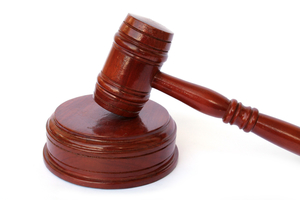Inappropriate remarks on local government councils
If you serve as an elected official on a local government council or board, you should know the types of remarks that are inappropriate during discussion at meetings. Robert’s Rules of Order and the common parliamentary law it is based on require that:
- Members of a council or board must be courteous to one another.
- They must speak to the issues, and not to personalities.
- They must stay on topic, and keep their remarks relevant to the item at issue.
Why are these remarks inappropriate?
A list of inappropriate remarks is given below. They are inappropriate because they are considered to be “not germane” (irrelevant) to discussion. We are offering parliamentary information here, and nothing in this post constitutes legal advice. It is a fact, however, that courts have affirmed the right of councils and boards to define the frame of reference for their discussions, and to require elected members of the council or board to keep their remarks “germane” (relevant).
List of inappropriate remarks that are not germane under Robert’s Rules of Order
- Personal remarks – remarks that pertain to an individual’s appearance, background, ethnicity or other personal aspects, rather than to his/her views on issues.
- Insults, obscenity, vulgarity and personal attacks.
- Inflammatory language – remarks that incite high emotions rather than addressing the issues.
- Criticizing past actions of the council, with two exceptions:
- If the council itself is discussing a past action, it is fine to criticize it.
- If the council member intends to propose to “amend” (change) or to “rescind” (cancel out) the action at the end of his speech, he may criticize it during his speech.
- Remarks that are not “germane” (relevant) to the discussion.
Can members of the public make these inappropriate remarks?
These restrictions apply to discussion by the members of the council or board themselves, and not to the public. When citizens or residents offer public comment, they have greater freedom than the elected officials. The council may set time limits for public comment, or require that public comment be limited to a subject under discussion by the council or board. But all such restrictions must be “viewpoint neutral.” Under the First Amendment to the U.S. Constitution, councils may not discriminate in favor of one point of view over another.
Who decides that a remark is inappropriate?
The chair of the meeting has the duty of enforcing the rules and should speak up and stop a council member who makes one of these remarks. If the chair neglects to do this, any council member can raise a Point of Order. When that happens, the chair makes a ruling as to whether the remark can be allowed in discussion.
Any two council members can challenge the chair’s ruling by appealing it. In that case, the council or board will decide, by majority vote, whether the remark can be made. There are no “parliamentary police”—the council itself interprets its own rules, based on its chosen parliamentary authority, and decides what remarks can be allowed in discussion, and what not. The council is the final authority—subject of course to any legal advice you receive from your attorney.
Note that Appeals pertaining to language and decorum may not be debated. It is just a straight up/down vote. Learn more about Point of Order and Appeal here.
Where can I find the inappropriate remarks in Robert’s Rules of Order?
You can find the rules about these remarks in Robert’s Rules of Order Newly Revised, 12th edition, the current and authorized version of Robert’s Rules, in Sections 43:19 – 28.


